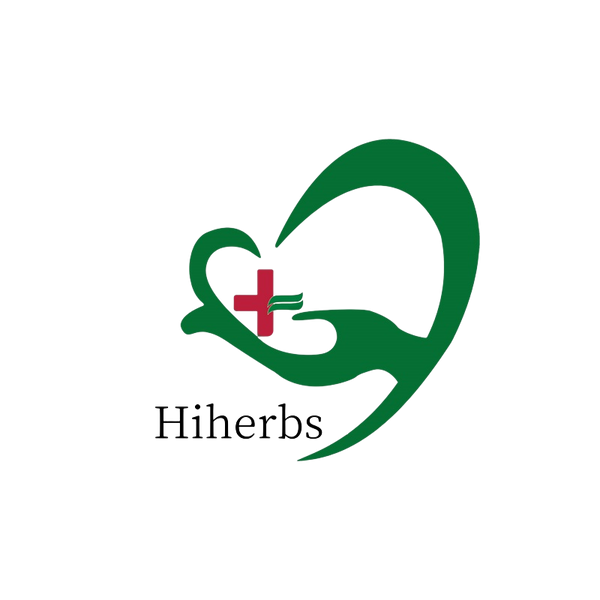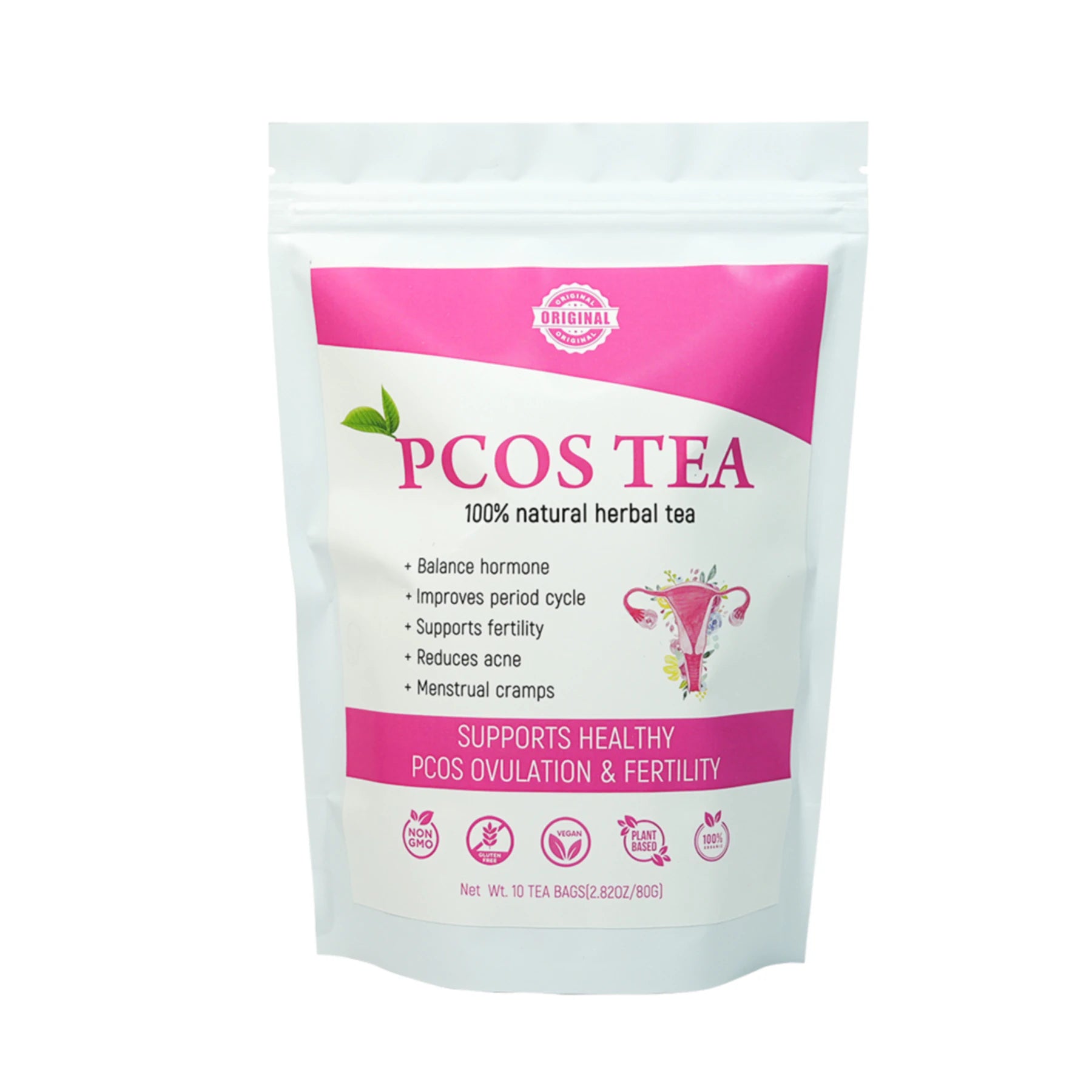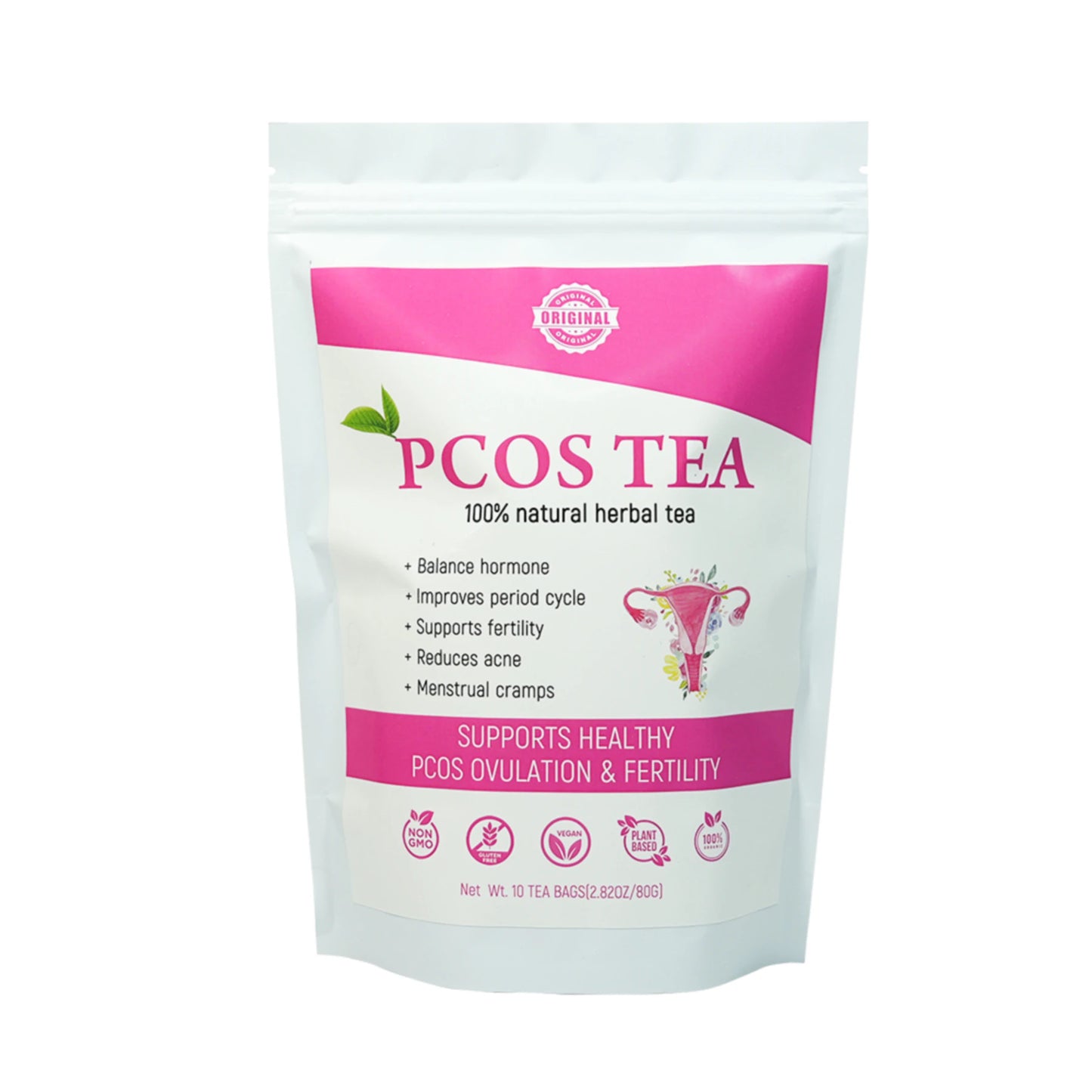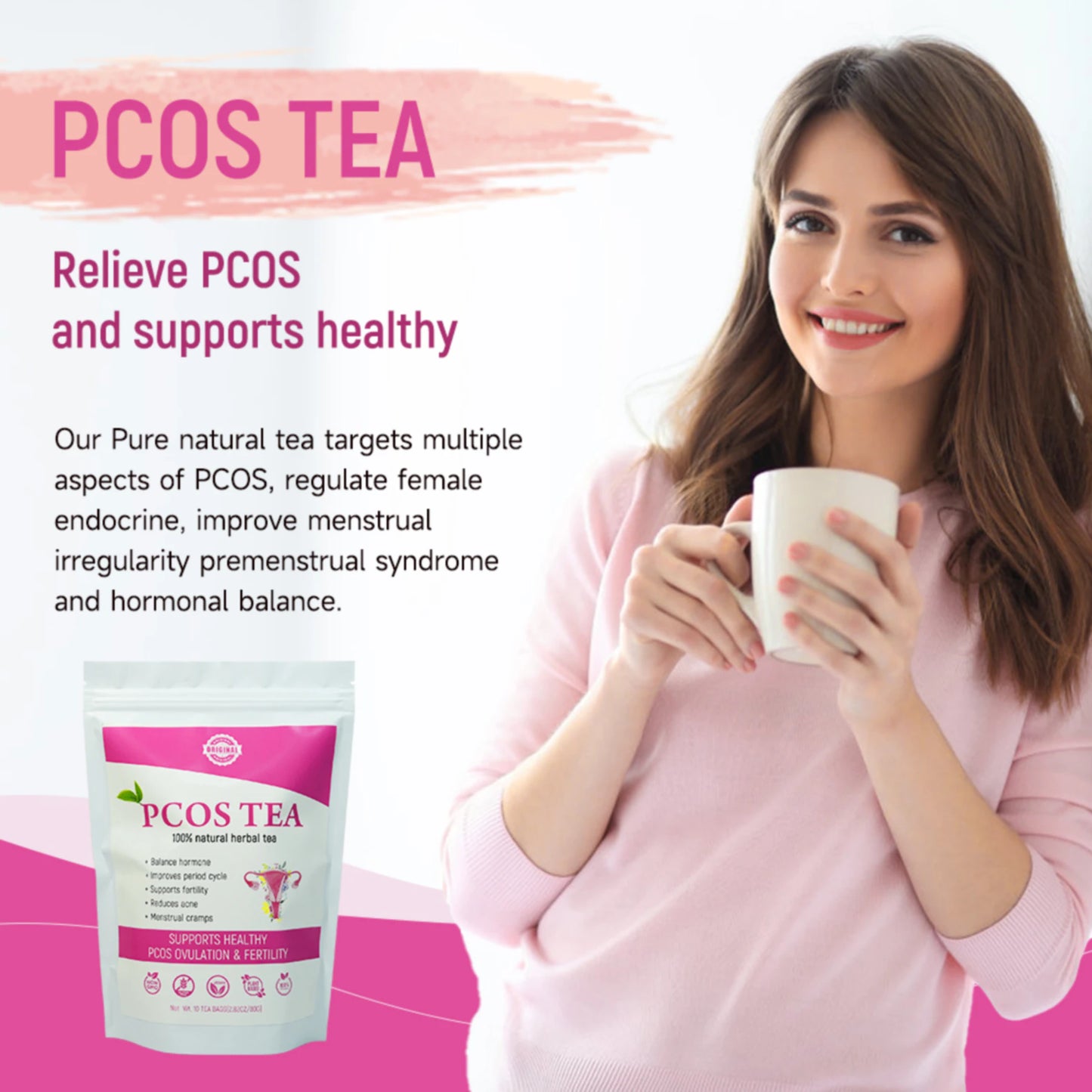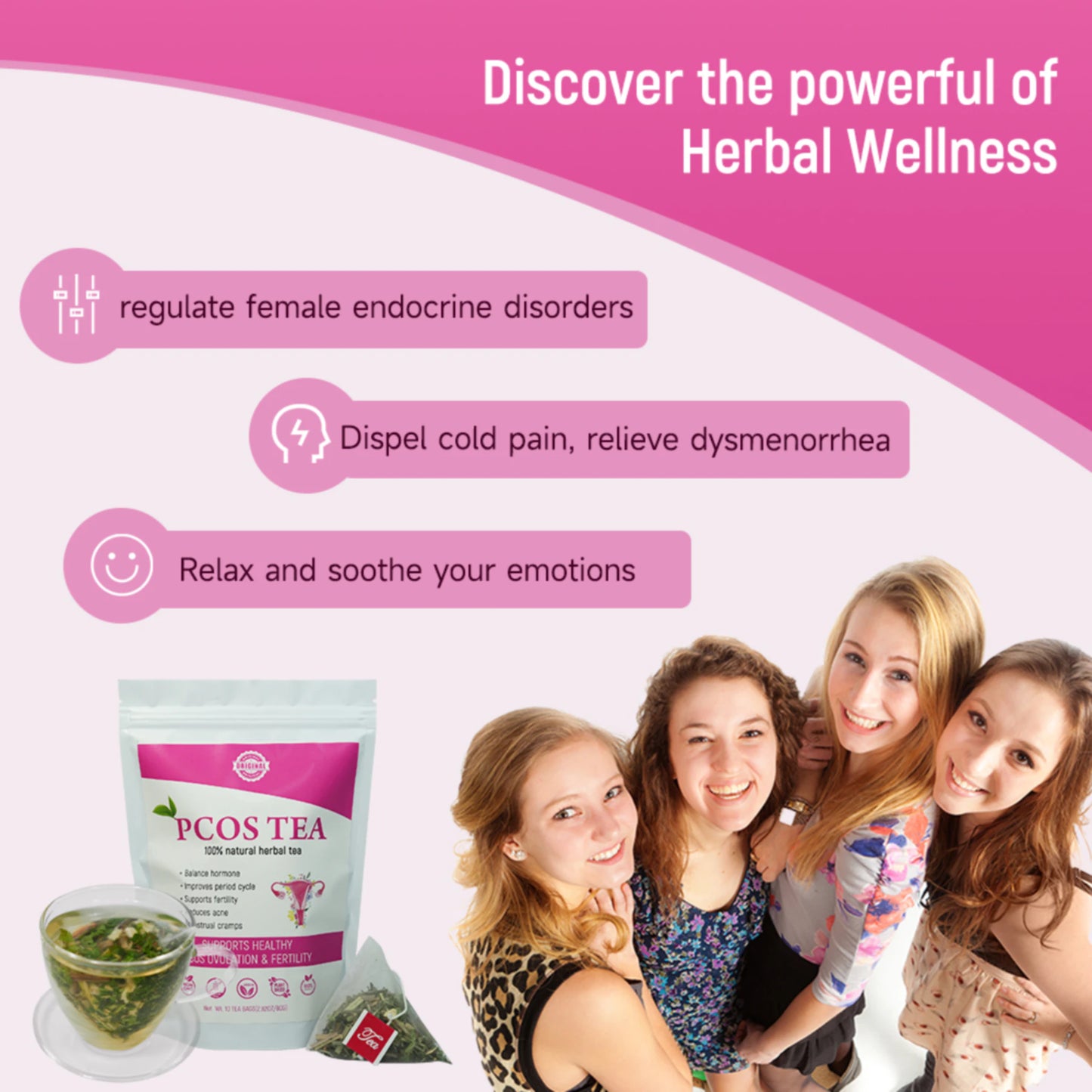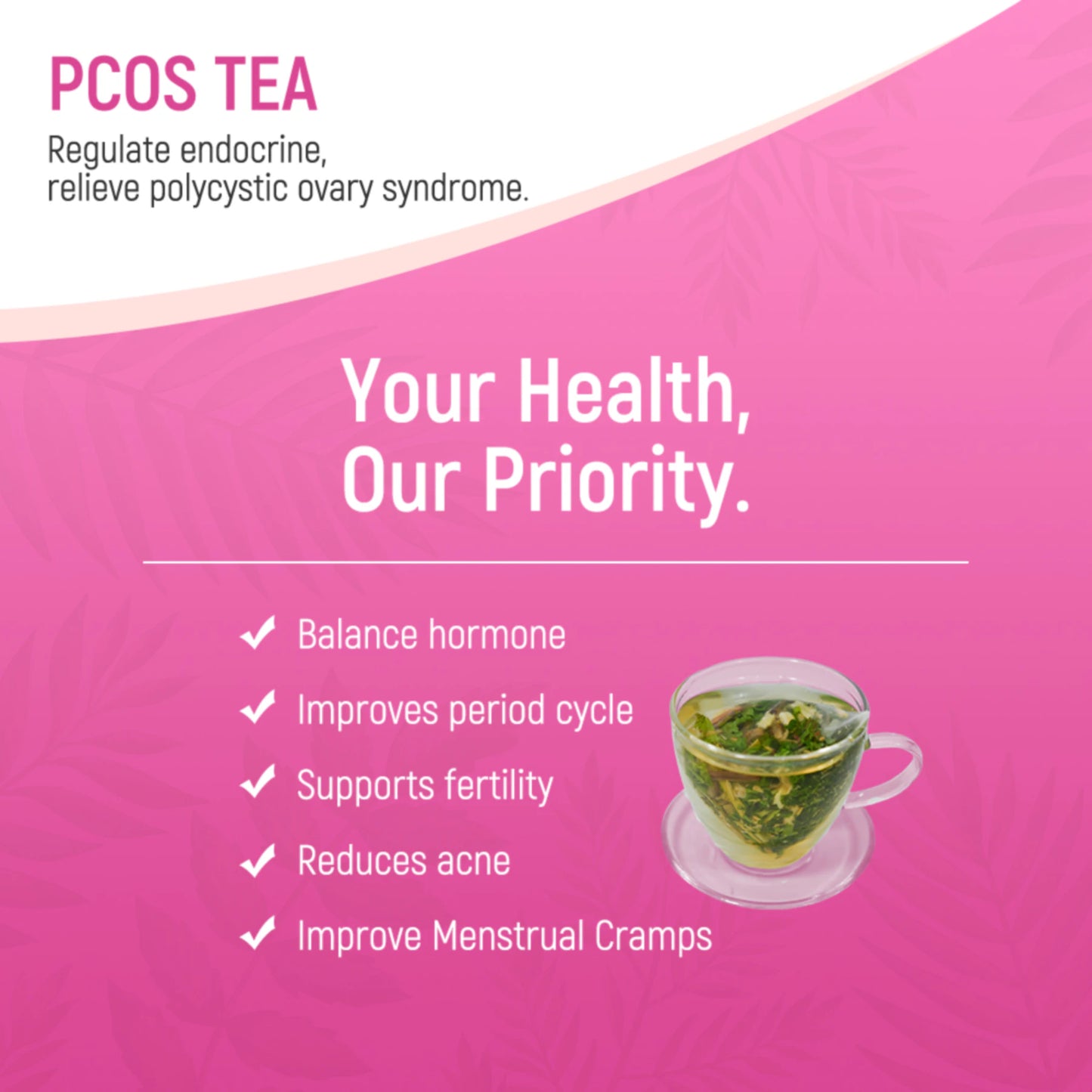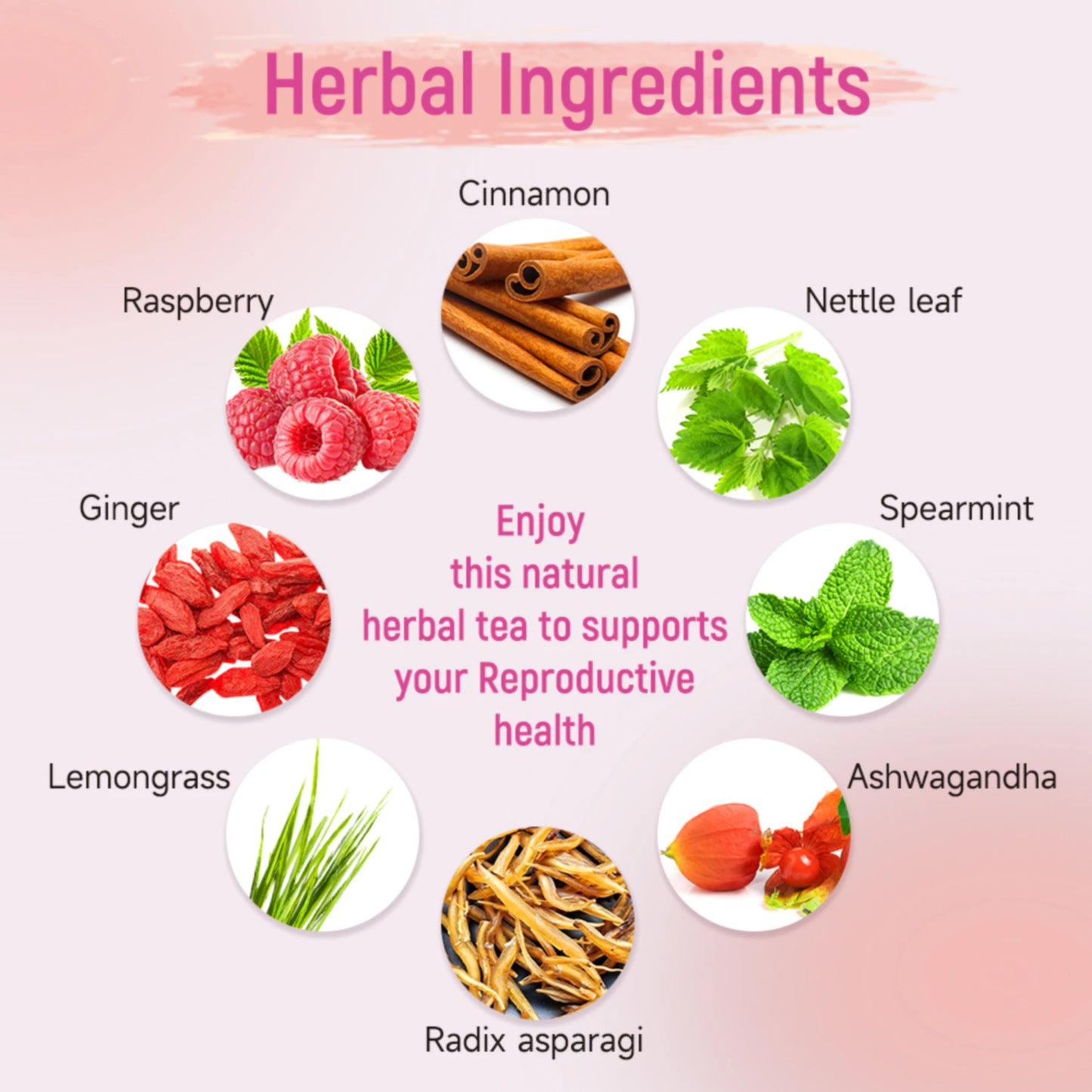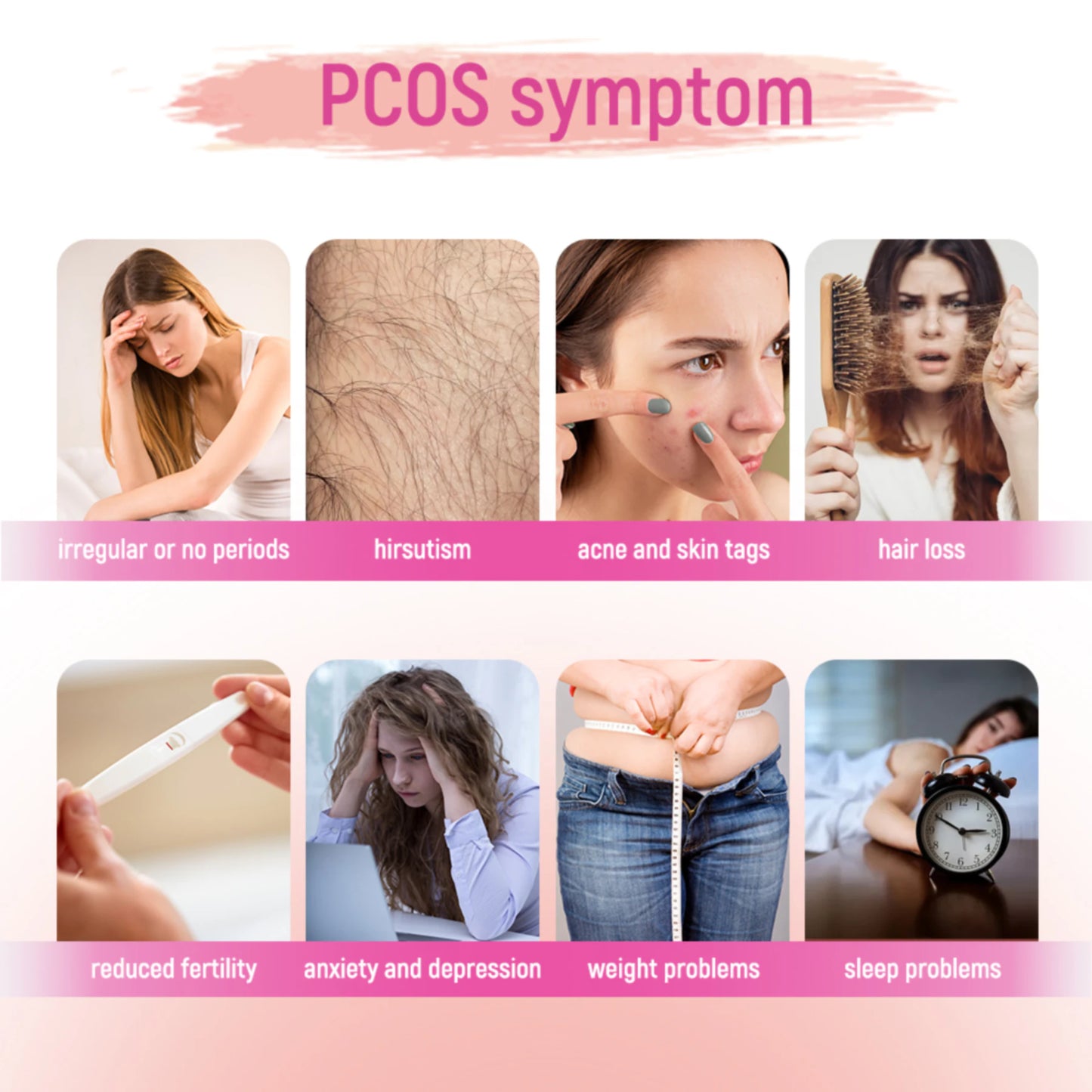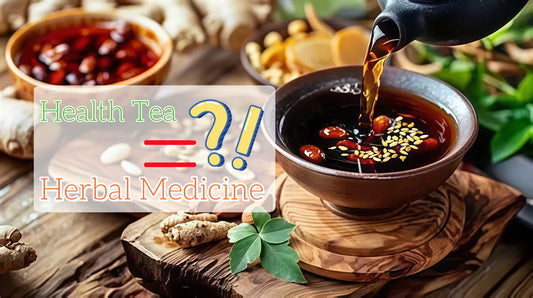Analysis of the 8 Main Components of Pcos Relief Herbal Tea
HiherbsOfficial
Share
The life of a patient with Polycystic Ovary Syndrome (PCOS) is like an endless "mouse-catching" game of hormones - once one symptom is controlled, another one pops up. Although synthetic hormone drugs like contraceptives can quickly solve the problem, they often also bring many negative effects.
Pcos Relief Herbal Tea, as the latest efficient method to relieve these annoying symptoms through herbal tea, can naturally balance the hormones in the body, alleviate hirsutism, acne, and other symptoms, and will not cause any side effects to the body. If we have to mention its disadvantages, it is that continuous consumption for 1-2 months is required without interruption. But this is indeed the health method that causes the least burden to your body at present. So what are the ingredients in this tea, and why can a small tea bag replace the doctor's treatment plan?
1. Cinnamon
Cinnamon not only has a wonderful taste, but it is also a secret weapon against high blood sugar. Unstable blood sugar can exacerbate the symptoms of polycystic ovary syndrome (PCOS). Some women say it significantly reduces the desire for sweet foods. "I used to eat a whole bar of chocolate after lunch every day," shared graphic designer Emma. "Now, having some cinnamon tea and some almonds is enough to satisfy me."

2. Spearmint
For women struggling with hirsutism, spearmint is highly effective. "I used to pull out my hair with tweezers every day, which took up a lot of my time and was prone to causing hair follicle inflammation. Since incorporating spearmint tea into my daily routine, I no longer have to do this. I have become more confident and it has really helped me a lot," said Elsa, who has been fighting hirsutism for ten years.

For acne, spearmint offers gentle support without the dryness or irritation of harsh topicals. "My cystic breakouts decreased by about 70%," shares TikTok creator . "I still get occasional pimples, but they’re smaller and heal faster."
3. Ashwagandha
The South African passion fruit can effectively reduce stress, calm emotions and enhance overall energy. Many women have reported that the frequency of their "rage attacks" has decreased, and their sleep quality has improved, becoming deeper, more restful and more energetic. "I used to wake up feeling completely confused," said nurse Priya. "Now, even after a busy shift, I feel very energetic."
4. Raspberry Leaf
Raspberry leaf is like a warm embrace for your reproductive system. Women tracking ovulation often notice more predictable cycles and improved cervical mucus quality—key for conception. "My ‘dry days’ decreased from 10 to just 3 per cycle," shares Lena, who’s been trying to conceive for 18 months.
In addition to promoting fertility, the magnesium in its species helps relieve menstrual cramps . “I use this tea instead of painkillers” Raspberry leaves are prized as a “women's herb” with fertility-aiding properties, a claim documented in ancient texts!
5. Nettle, Ginger, Lemongrass & Radix Asparagi
When inflammation becomes a constant companion, these four botanicals step in as your daily defense squad. Nettle, often called “nature’s multivitamin,” has become a favorite for women battling PCOS-related bloating and breast tenderness. "I used to buy bigger bras just for my luteal phase," admits Clara, a teacher who now swears by nettle tea. "Now the swelling is manageable—I finally feel like my body isn’t working against me."
Ginger and lemongrass form a dynamic duo for menstrual discomfort. Their warming properties don’t just ease cramps—they create a soothing ritual. "Brewing this tea feels like wrapping myself in a cozy blanket," shares Sofia, who ditched painkillers after three cycles. "The ginger bite and lemongrass citrus notes make even my worst period days feel a little brighter."
Radix Asparagi addresses the deep exhaustion that synthetic treatments often amplify. Traditional Chinese Medicine praises it for nourishing “yin” energy—a concept modern users translate as “feeling human again.” "Birth control left me in a fog," says Mei. "With this tea, I’m tired but not dead-eyed. I can finally cook dinner without wanting to cry."
6. Real Feedback - ‘This Changed How I Live With PCOS’
"After going through an unpredictable menstrual cycle for eight years, I finally experienced the comfort brought by regular ovulation and menstruation. I no longer feel anxious about it." – Anonymous, via email
"My dermatologist said my hormonal acne needed Accutane. Six months of this tea later, she asked ME for the recipe. Take that, cysts!" – Twitter User
"Now I truly enjoy the comfort of my weekend hiking trips. Before I had PCOS, I always shut myself away in my room. I'm still very tired, but now it's 'normal human fatigue' - not the fatigue caused by PCOS. Thanks to the comfort of the weekend hiking, before I had PCOS, I always kept myself locked in my room. I'm still very tired, but now it's 'normal human fatigue' - not the fatigue caused by PCOS." – PCOS Tea 6-month success stories archive
 |
Hiherbs Pcos Relief Herbal Tea
|
Conclusion
The management of polycystic ovary syndrome (PCOS) is not about achieving perfect laboratory test results or sharing a share-worthy menstrual cycle on Instagram. Rather, it is about regaining a moment of normalcy in the unpredictable body. This tea cannot replace a diagnosis, but it might help you rediscover some small pleasures: the sense of pride when recognizing body signals, the comfort of a warm cup of tea during menstrual cramps, and the quiet victory of choosing self-care over self-criticism.
Pair it with the stress-management tips from our Check your PCOS risk factors guide, and remember: Healing isn’t linear. Some days you’ll feel unstoppable; others, you’ll need extra grace. Both are part of the journey. Here’s to celebrating every step forward, no matter how small.
